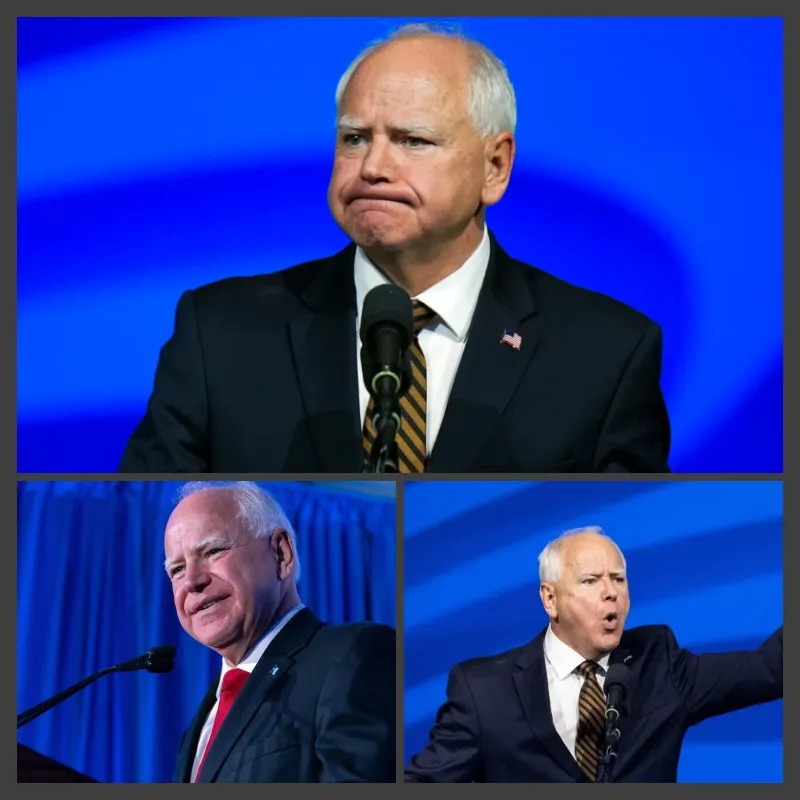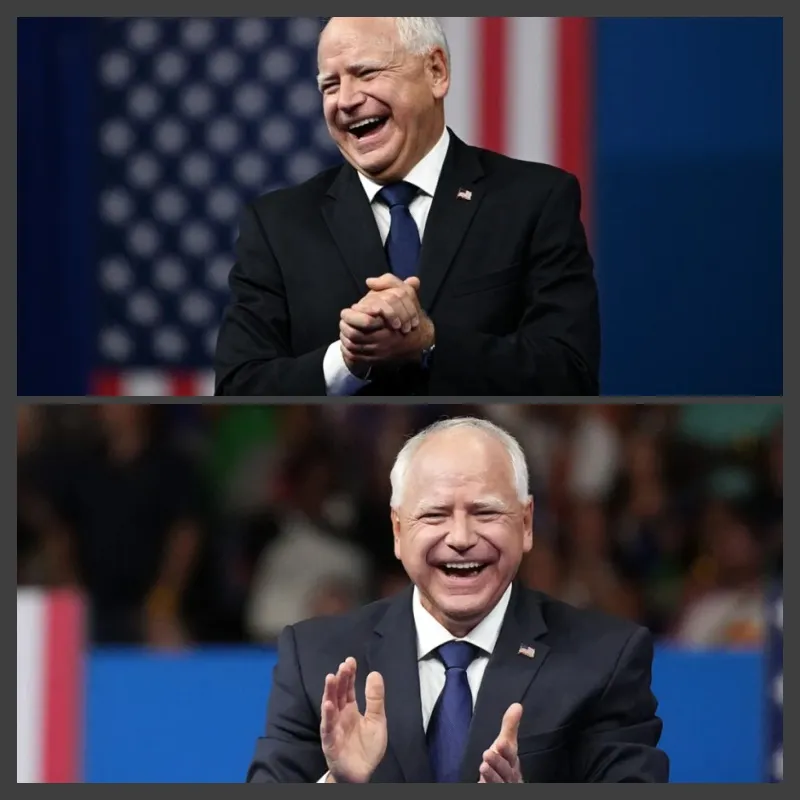
Republicans Target Walz with Controversial Claims About His Dog: The Potential Impact of Misleading Attacks
In a move that has sparked considerable debate, Republicans have recently targeted Minnesota Governor Tim Walz with a controversial campaign narrative focused on what they claim are inconsistencies regarding his dog, Scout. This narrative has been amplified across social media platforms, raising questions about the potential impact of such attacks on public perception and the political process.

The controversy began with the circulation of two social media posts from Walz, each featuring different dogs. In a post from June 2022, Walz is seen embracing a black dog, accompanied by a caption celebrating Scout’s birthday. In contrast, an October 2022 post shows Walz with a brown and white dog, suggesting that Scout was enjoying a day at the dog park. Critics seized upon these discrepancies, alleging that Walz’s posts demonstrate dishonesty about the identity of his pet.
This issue might appear minor at first glance, but the GOP has used it to build a broader narrative questioning Walz’s integrity. The implication is that if Walz can’t be trusted about something as trivial as his dog, he may not be trustworthy on more significant issues. Social media users have shared screenshots of the posts, garnering thousands of likes, shares, and reactions, thereby amplifying the attack.
In response, Walz’s supporters have defended the governor by clarifying that he was simply interacting with another dog while referring to Scout in the captions. They argue that this is a common and innocuous practice and does not indicate any attempt at deceit. Despite these explanations, the attack has gained traction, demonstrating how minor details can be magnified in the political arena.
Political experts caution that such attacks, while seemingly trivial, can have substantial effects. Emily Vraga, a professor at the University of Minnesota who specializes in political misinformation, notes that these claims are part of a larger strategy to undermine Walz’s character. “Even seemingly insignificant claims can contribute to a larger narrative about a candidate’s dishonesty,” Vraga explains. “When multiple false claims are made, it can create a perception of credibility issues, affecting how voters perceive the candidate.”
Nathan Walter, an associate professor at Northwestern University who also studies misinformation, agrees with Vraga’s assessment. He emphasizes that these attacks are designed to erode trust in Walz. “The objective is to attack the candidate’s character and integrity,” Walter says. “If voters believe that Walz is dishonest about small matters, they might extend that belief to other aspects of his life and career.”

This tactic of focusing on minor inaccuracies is not unique to Walz. Democrats have similarly targeted Republican candidates, such as Ohio Senator JD Vance and former President Donald Trump, with criticisms that some view as superficial. For instance, criticisms of Walz’s military record and comments about his food preferences have also been used to question his authenticity. This reflects a broader trend in modern politics where personal attacks and minor discrepancies are often highlighted to undermine a candidate’s credibility.
The focus on such trivial matters has significant implications for voter engagement and the political process. Vraga warns that an overemphasis on negative and petty attacks can lead to voter disillusionment. “When political discourse becomes dominated by minor and negative attacks, it can discourage voter participation,” she says. “Voters might become frustrated and choose to disengage from the political process altogether.”
Moreover, the use of such attacks can contribute to a broader sense of political cynicism, where voters perceive all politicians as dishonest or untrustworthy. Walter points out that this “spaghetti approach” — throwing out numerous claims to see what sticks — plays into existing negative perceptions about politicians. “Even if individual claims are not significant, their accumulation can reinforce the idea that politicians are inherently untrustworthy,” he says.
In the case of Walz, this strategy might be particularly impactful given his relatively low national profile compared to other political figures. Despite his position as vice presidential nominee, the focus on personal attacks could shape perceptions of him among voters who are less familiar with his record and policies.
As the election season progresses, the implications of these attacks will become clearer. The extent to which they affect voter perceptions and turnout remains to be seen. However, the current focus on trivial matters underscores the challenges candidates face in navigating a polarized political landscape where even minor details can be weaponized against them.
The controversy surrounding Walz’s dog, while seemingly minor, highlights a larger trend in political campaigning where personal attacks and trivial discrepancies are used to undermine a candidate’s credibility. As the political discourse continues to evolve, the impact of such tactics on voter perceptions and engagement will be an important aspect to watch.






